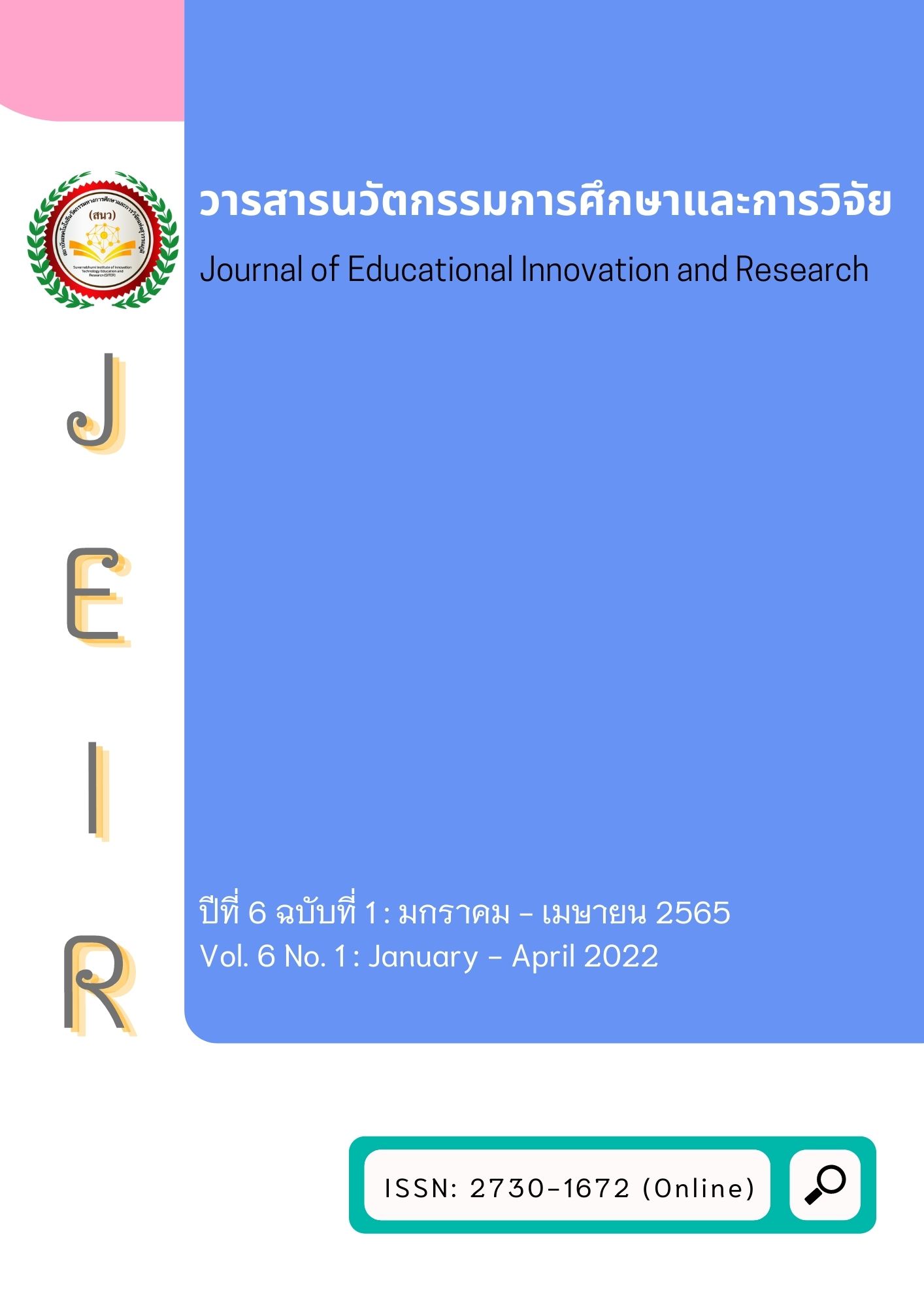การบ่มเพาะมารยาทดิจิทัล: วิธีสอนออนไลน์เพื่อการเปลี่ยนแปลงสู่ความเป็นพลเมืองก้าวหน้าในห้องเรียนสังคมศึกษาเสมือนจริง
Main Article Content
บทคัดย่อ
สถานการณ์การเปลี่ยนแปลงสังคมโลกเข้าสู่ยุคหลังดิจิทัล ผู้คนมีเสรีภาพในการสื่อสาร
และแบ่งปันค่านิยม และองค์ความรู้สังคมโลกไร้พรมแดน โลกออนไลน์กลายเป็นพื้นที่ปฏิสัมพันธ์ทางสังคม และถูกนำมาบูรณาการในการพัฒนาคุณภาพชีวิตของพลเมืองหลายองค์กร เช่น การจัดการเรียนการสอนในระบบออนไลน์ การจัดการสุขภาพ การแก้ปัญหาความยากจน จากสถานการณ์ในปัจจุบันพบว่า ผู้คนในโลกออนไลน์ยังคงขาดสำนึกความรับผิดชอบในการใช้สื่อสังคมออนไลน์เป็นจำนวนมาก ซึ่งก่อให้เกิดผลกระทบในวงกว้าง การศึกษามารยาทดิจิทัลของพลเมืองก้าวหน้าผ่านห้องเรียนดิจิทัลพลิกพลันจะช่วยให้เกิดแนวทางการปฏิบัติที่ดีในการใช้พื้นที่สังคมออนไลน์บนโลกดิจิทัลของพลเมืองโลกได้อย่างมีประสิทธิภาพ
Article Details

อนุญาตภายใต้เงื่อนไข Creative Commons Attribution-NonCommercial-NoDerivatives 4.0 International License.
เอกสารอ้างอิง
กระทรวงศึกษา. (2558). นโยบายรัฐมนตรีว่าการกระทรวงศึกษาธิการ. กรุงเทพฯ: สำนักปลัดกระทรวง กระทรวงศึกษาธิการ.
คุณากร คงจันทร์, นันทิยา ดวงภุมเมศ และสิรินทร พิบูลภานุวัธน์. (2564). มารยาทการสื่อสารผ่านสื่อสังคมออนไลน์ของคนไทย. วารสารปาริชาต, 34(1), 155-175.
ฉัตรพงศ์ ชูแสงนิล. (2562). ความฉลาดทางดิจิทัล (Digital intelligence). สืบค้นเมื่อ 15 มิถุนายน 2564, จาก https://www.scimath.org/article-technology/item/10611-digital-intelligence
ชรินทร์ มั่งคั่ง. (2559). อนาคตวิทยา: ทฤษฎีและเทคนิคการจัดการเรียนรู้สังคมศึกษา. เชียงใหม่: ไดมอนด์ กราฟิก กรุ๊ป.
ทวนทอง เชาวกีรติพงศ์, และสมชัย วงษ์นายะ. (2563). แนวทางการพัฒนาความเป็นพลเมืองดิจิทัลของนักศึกษาคณะครุศาสตร์มหาวิทยาลัยราชภัฏกำแพงเพชร. วารสารมนุษย์ศาสตร์และสังคมศาสตร์, 26(4), 72-85.
พรชนิตย์ ลีนาราช. (2560). ทักษะการรูดิจิทัลเพื่อพัฒนาคุณภาพการเรียนรู้. วารสารห้องสมุด, 61(2), 76-92.
วรพจน์ วงศ์กิจรุ่งเรือง. (2561). คู่มือพลเมืองดิจิทัล. กรุงเทพฯ: สำนักงานส่งเสริมเศรษฐกิจดิจิทัล กระทรวงดิจิทัลเพื่อเศรษฐกิจและสังคม.
สำนักงานสถิติแห่งชาติ. (2561). การสำรวจเทคโนโลยีสารสนเทศและการสื่อสารในครัวเรือน. สืบค้นเมื่อ 16 มิถุนายน 2564, จาก http://www.nso.go.th/sites/2014/Pages/News/2561/N26-10-61.aspx
Akhwani. (2019). Strategy of Digital Etiquette Education of Elementary School Students. PrimaryEdu-Journal of Primary Education, 3(2), 43-54. https://doi.org/10.22460 /pej.v3i2.1378
Beck, U. (2017). The Metamorphosis of the World. UK: Polity Press.
Bezold, C. (2009). Jim Dator's Alternative Futures and the Path to IAF's Aspirational Futures. Journal of Futures Studies, 14(2), 123-134.
Bowden, D. (2007). Origins and concepts of digital literacy. New York: Lang Pub.
Cordell, R. (2013). Information literacy and digital literacy: Competing or complementary? Communication in Information literacy, 7(2), 177-183.
Cranton, P. (2016). Understanding & Promoting Transformative Learning: A Guide to Theory and Practice. (3rd ed.). United States: Stylus Publishing.
Gilster, P. (1997). Digital literacy. New York: John Wiley & Son.
Hargittai, E. (2005). Survey measures of web-oriented digital literacy. Social Science Computer Review, 23(3), 371-379.
Knox, J. (2019). What Does the ‘Postdigital’ Mean for Education? Three Critical Perspectives on the Digital, with Implications for Educational Research and Practice. Postdigital Science and Education, 1(1), 357-370.
Mangkhang. C., & Kaewpanya. N. (2021). The Scenarios Perspective of Social Studies Pedagogy to Next Citizenship in the 22nd Century. Turkish Online Journal of Qualitative Inquiry, 12(8), 5172-5180.
Martin, A. (2006). Literacies for the digital age. London: Facet Pud.
Nordin, M.S., et al. (2016). Psychometric properties of a digital citizenship questionnaire. International Education Studies, 9(3), 71-80. https://doi.org/10.5539/ies.v9n3p71
Ribble, M. (2015). Digital Citizenship in Schools: Nine elements all students should know. (3rd ed.). USA: International Society for Technology in Education.
Shea, V. (1994). Netiquette. San Francisco: Albion Books.
Soby, M. (2003). Digital competence- from education policy to pedagogy: The Norwegian context. New York: Lang Pub.
William, P., & Minnian, A. (2007). Exploring the challenges of developing digital literacy in the context of special education needs. Australia: Auslib Pr.


